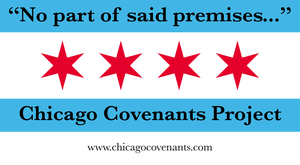Current Members
Full Member Institutions
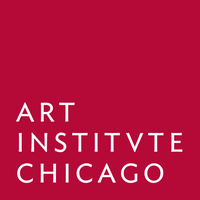
Art Institute of Chicago
In addition to being a world-class museum, we are an institution whose academic origin proudly informs our mission. With that in mind, the Art Institute invites scholars, students, teachers, the curious and inspired, and learners of all sorts to take advantage of our world-class library and archives and make use of our research tools, study rooms, and opportunities to learn.
Learn more about the library, archives and institutional archives...
The library comprises a major art and architecture research collection of print titles, auction catalogs, serial subscriptions, and extensive digital collections. Plan a visit. The Art Institute of Chicago Archives is the institution’s official archival repository, providing a foundation for institutional memory by collecting, organizing, and preserving materials of enduring value. Access & FAQs The Institutional Archives of the Art Institute of Chicago contain the official papers and records of the Art Institute museum and school since its founding. An appointment is required to view materials.
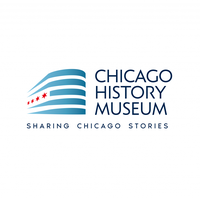
Chicago History Museum
CHM collects materials about the city’s multicultural history and engages the public. Black collections strengths at CHM include the African American Police League Records, the Chicago Housing Authority Development Records, the Olivet Baptist Church Records, and the Thing Magazine Records. CHM’s Abakanowicz Research Center is open Tuesday through Friday as well as Saturdays during the academic year. We encourage you to email research@chicagohistory.org to ensure that an on-site visit is best for your needs. You may also explore the Online Research Resources, including the Encyclopedia of Chicago and the image licensing portal to plan and conduct some research from a distance. Accessibility options at this repository include elevators, automatic doors, wheelchair-accessible toilets, voice descriptions for images and videos, sign language interpretation, and the “Touch Tours of Chicago: Crossroads of America” which are available by appointment only. Learn more about this repository and collections at the Chicago History Museum.

Chicago Public Library
The Chicago Public Library houses several important collections. Harold Washington Library’s Special Collections contains materials related to Chicago, the Civil War, and Mayor Harold Washington. Black collections strengths at Harold Washington include the Harold Washington Archives Collection, the Jubilee Showcase Gospel Music Video Collection, and the Kuumba Theater Company Collection. Learn more about Harold Washington Library Special Collections.
Woodson Regional Library houses the Vivian G. Harsh Research Collection, the largest African American history and literature collection in the Midwest. Collection strengths at Harsh include the Afro-American Genealogical and Historical Society of Chicago Records, the International Society of Sons and Daughters of Slave Ancestry Records, and the Chester Commodore Papers. Accessibility options at this repository include elevators, automatic doors, low-height counters and wheelchair-accessible research tables, wheelchair-accessible toilets, and braille on signage. Learn more about the Vivian G. Harsh Research Collection.
Request an appointment to access Special Collections at The Harold Washington Library Center, Vivian G. Harsh Research Collection at Woodson Regional Library, and Northside Neighborhood History Collection at Sulzer Regional Library. Staff are available to help with questions via phone, email and Ask a Librarian.
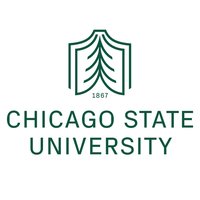
Chicago State University
Chicago State University's Archives, Records Management, and Special Collections preserves the historical record of the University. Black collection strengths at CSU include the Margaret Smith Papers, the Steven Balkin Maxwell Street Chicago Collection, and the R. Eugene Pincham and Alzata C. Pincham Collection. CSU’s ARMS has resumed in-person services for CSU's community and the general public. They are open at limited capacity and are adhering to strict enforcement of social distancing measures. We strongly encourage all researchers to schedule an appointment. Plan a visit or request reproductions of materials by contacting ARMS staff at csu_archives@csu.edu or at 773-995-2246 Monday through Friday between 9am and 4pm. Accessibility options at this repository include elevators, automatic doors, low height counters and wheelchair-accessible research tables, quiet study areas with lighting adjustments, wheelchair-accessible toilets, braille on signage, and electric compact shelving. Learn more about Chicago State's archival collections.
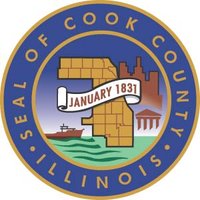
Cook County Archives and Records Office
The Cook County Historic Archives and Records Office (CARO) mission is to compile the history of Cook County Government and explain the role the County plays in the growth and development of the region, state, and nation. CARO documents the significance of each County agency, providing a greater understanding for County residents and employees of each agency’s role in County government. CARO’s goal is to develop a robust archives center, activate collections by highlighting Cook County Government records and community-based archival materials, and engage residents through public programs. CARO is committed to strengthening relationships between the government and the people, and to engaging the Community by providing the platform to share, preserve and contribute their stories to overarching historical narratives. CARO is currently closed to the public for in-person visits, though they are slated to open for patron visits in the future. CARO is committed to providing access to rich historical archival materials that explain the role of the growth and development of Cook County. CARO welcomes inquiries and offers remote reference services to which inquiries can be directed to cookcountyarchives@cookcountyil.gov. Learn more about Cook County collections.

DePaul University
DePaul’s Special Collections and Archives collects, preserves, and shares materials that support the University’s teaching mission. Black collection strengths at DePaul include the Illinois Coalition Against Domestic Violence records, the Islam in America Collection, and the Chicago Great Lakes Underground Press Collection. DePaul’s Special Collections and Archives are open to walk-in researchers during scheduled open hours, Wednesday through Friday. Accessibility options at this repository include elevators, automatic doors, low height counters and wheelchair accessible research tables, wheelchair-accessible toilets, and braille on signage. Learn more about DePaul collections
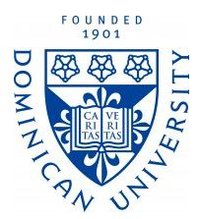
Dominican University
Dominican University's Archives and Special Collections is responsible for the collection, organization, description, preservation, and access to the University's and its community's records. Collections surveyed by the BMRC include the Multicultural Affairs Records and the Photograph Collection. Dominican University’s Archives and Special Collections are open by appointment for University students, faculty, and staff on Monday through Friday. For Archives related research assistance please contact the staff via email at archives@dom.edu or call 708-524-6873 or 708-524-6880. Accessibility options at this repository include ramps, elevators, automatic doors, quiet study areas with lighting adjustments, and wheelchair-accessible toilets. Learn more about Dominican University's holdings.
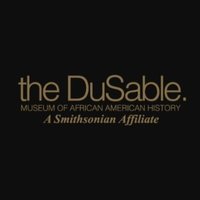
The DuSable Black History Museum and Education Center
The DuSable Black History Museum and Education Center, formerly the DuSable Museum of African American History, is a museum in Chicago dedicated to studying and conservating African-American history, culture, and art. The DuSable Museum is proud of its diverse holdings, which include more than 15,000 pieces, including paintings, sculptures, print works, and historical memorabilia. Special exhibitions, workshops, and lectures are featured to highlight works by particular artists, historical events, or collections on loan from individuals or institutions.

Illinois Institute of Technology
IIT’s University Archives and Special Collections collects, preserves, stores, and provides access to the university’s records and collections. Strengths in IIT’S collections include materials related to the Institute’s predecessors and the South Side Planning Commission. IIT’S University Archives and Special Collections is open Monday through Friday between 1pm and 5pm. Accessibility options at this repository include ramps, elevators, automatic doors, low height counters and wheelchair-accessible research tables, wheelchair-accessible toilets, and braille on signage. Learn more about collections at IIT.
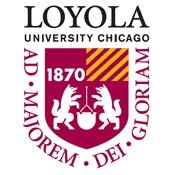
Loyola University Chicago
More information coming soon!

Newberry Library
Newberry Library is an independent research library that collects, preserves, and makes accessible 15,000 linear feet of historic materials. Black collection strengths at the Newberry include the Ann Barzel Dance Research Collection, the Pullman Railroad Employment Records, and the Illinois Writers’ Project Papers, that are related to Arna Bontemps. Newberry Library’s reading rooms are open to researchers. Learn about getting your reader card so you can start doing research with them. Please see Newberry's website, linked at the end of this blurb, for more information. Accessibility options at this repository include ramps, elevators, automatic doors, quiet study areas with lighting adjustments, wheelchair-accessible toilets, braille on signage, and enlargers for fine print books. Learn more about materials at the Newberry Library.
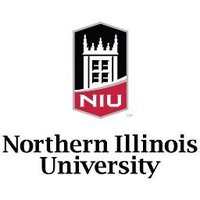
Northern Illinois University
The Special Collections and Archives of Northern Illinois University Libraries house over 150,000 volumes and several hundred linear feet of manuscripts. The Regional History Center and University Archives acquires, preserves, and makes available to the public significant historical records of the northern Illinois region. NIU actively collects from the eighteen northern counties of Illinois excluding Cook County but including Kane, DuPage, and Lake Counties. The Northern Illinois Digital Library includes a variety of Chicago and Illinois-related content, from images to essays to videos. The Library's Local Government Records collection is part of the Illinois Regional Archives Depository system (IRAD) administered by the Illinois State Archives and covers the same 18 counties. Black collection strengths include the papers of authors Willard Motley, Nisi Shawl, and Nnedi Okorafor, the Rockford Urban Ministries collection, and papers of the organization People Who Care relating to school litigation in Rockford. NIU’s Special Collections and Archives are currently only serving researchers by email at this time. Please send questions to rhcua@niu.edu. Learn more about the Rare Books and Special Collections here, and about the Regional History Center and University Archives here.
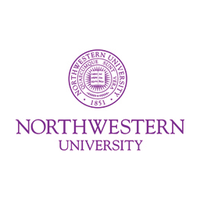
Northwestern University
Northwestern's Archives houses and provides access to records, publications, and photographs related to its history. The McCormick Library of Special Collections has materials related to Ronald Fair, Richard Wright, Amiri Baraka, and Ira Aldridge. The Herskovits Library of African Studies has a large collection of papers, photographs, and posters covering topics like the anti-apartheid movement in South Africa and the African Studies Association. Northwestern’s libraries are currently open by appointment Monday through Friday from 9am-4:30pm. Plan a visit here or request reproductions of materials by creating a user account and filling out the online request form. You may also email specialcollections@northwestern.edu with questions. Accessibility options at this repository include ramps, elevators, automatic doors, quiet study areas with lighting adjustments, wheelchair-accessible toilets, braille on signage, closed-captioning for videos, and text-to-voice software. Find more accessibility information. Learn more about the McCormick Library, and about the Herskovits Library.
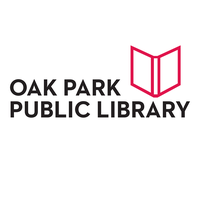
Oak Park Public Library
Oak Park Public Library empowers its community’s voices and shares information, services, and opportunities for Oak Park’s goals. The BMRC has not yet surveyed collections at this repository. A few of their Black collections include the Open Housing Movement Collection and the Harriette Gillem Robinet Collection. Oak Park Public Library is open on Monday through Thursday from 9am-9pm, Friday from 9am-5pm, and Saturday & Sunday from 12pm-5pm. Accessibility options at this repository include ramps, elevators, and wheelchair-accessible toilets. Learn more about collections at Oak Park Public Library.
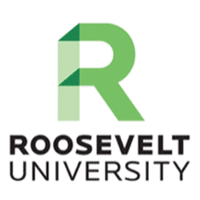
Roosevelt University
Roosevelt University’s Archives collects, preserves, exhibits, and provides access to materials holding the institutional memory of the University and its community. Black collection strengths at Roosevelt University Archives include the Frank Untermeyer Papers, the Dempsey Travis Papers, and the Christopher Robert Reed Papers. Roosevelt University’s Archives are available by appointment on Monday through Friday from 9am-4pm, except university holidays. Please contact University Archivist Laura Mills at lmills@roosevelt.edu or 312-341-2280 for more information. Accessibility options at this repository include ramps, elevators, quiet study areas with lighting adjustments, and wheelchair-accessible toilets. Learn more about collections at Roosevelt.
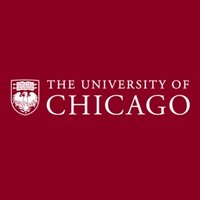
The University of Chicago
The Hanna Holborn Gray Special Collections Research Center is the repository for the University of Chicago’s rare books, manuscripts, University Archives, and Chicago Jazz Archives. Black collection strengths at the SCRC include the Ida B. Wells Papers, the ACLU Illinois Records, the Hyde Park Historical Society Collection, and the Alton Abraham Collection of Sun Ra. The SCRC is currently open by appointment to all researchers in morning or afternoon appointment blocks. Requests for materials should be submitted at least one business day before appointments. Appointments will open up two weeks in advance on a rolling basis throughout the quarter. Check reading room access online before using the reservation system to make an appointment. Researchers needing to make travel plans are welcome to contact SCRC staff about possible reservations further out. Accessibility options at the SCRC include ramps, elevators, automatic doors, and low height counters and wheelchair-accessible research tables. Learn more about special collections at the University of Chicago.
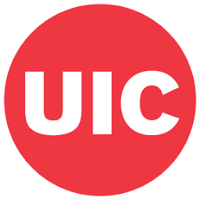
University of Illinois at Chicago
UIC’s Special Collections and University Archives supports, enhances, and collaborates with the rest of the University towards their goals for education, research, and service activities. Black collection strengths at UIC include the Chicago Urban League Records, the Hyde Park Neighborhood Club Records, and the Maxwell Street Exhibition Photographs. UIC’s Special Collections and University Archives are currently open by appointment on Monday through Wednesday and Friday from 10am-4pm, and on Thursday from 11am-4pm. Visits require a minimum of 24 hour advanced registration. Use the UIC SCUA Patron Registration Form to schedule an appointment. If you have additional questions, please email lib-spec@uic.libanswers.com. Accessibility options at this repository include elevators, automatic doors, low height counters and wheelchair-accessible research tables, wheelchair-accessible toilets, braille on signage, closed-captioning for videos, and text-to-voice software. Learn more about UIC Special Collections and Archives.
Associate Member Institutions
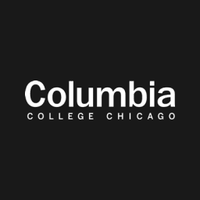
Columbia College Chicago
CCC’s Archives and Special Collections documents and shares materials related to the College. The College Archives manages the Center for Black Music Research collections, which include materials of organizations like the National Association for Negro Musicians, of individual composers and musicians, and of pioneering scholars like Eileen Southern. The College Archives has materials relevant to the African diaspora and Chicago’s Anti-Apartheid Movement. Columbia’s Archives and the CBMR are currently open by appointment. See their Researcher Services page for more information and to make an appointment. Accessibility options at this repository include elevators, automatic doors, low height counters and wheelchair-accessible research tables, wheelchair-accessible toilets, braille on signage, and sign language interpretation. Learn more about Columbia College Archives and Special Collections.
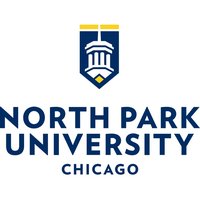
North Park University
The F. M. Johnson Archives and Special Collections preserves the history and tells the story of North Park University, the Evangelical Covenant Church, and Swedish-American experiences in the Chicagoland area. Black collection materials at this repository include records from NPU’s Office of Diversity, multiethnic ministries of the ECC, and materials about local Black communities. The Johnson Archives and Special Collections is currently open to researchers by appointment Monday through Friday from 9:30am-5pm, excluding holidays and university closures. Please contact Andrew Meyer to make an appointment. Accessibility options at this repository include elevators, automatic doors, low-height counters and wheelchair-accessible research tables, quiet study areas with lighting adjustments, wheelchair-accessible toilets, and braille on signage. Learn more about the archives at North Park.

Rebuild Foundation
Rebuild Foundation prioritizes art, cultural development, and neighborhood transformation by offering free arts programming, cultural amenities, and affordable housing, studio, and live-work spaces for Black people in Chicago. The Johnson Publishing Library, the Glass Lantern Slides Collection, the Frankie Knuckles Collection, and the Edward J. Williams Collections are available for research purposes only at the Stony Island Arts Bank. There are currently no finding aids for the collections. All of the Rebuild Foundation’s archival holdings are currently closed to researchers. Accessibility options at this repository include elevators, low height counters and wheelchair-accessible research tables, and wheelchair-accessible toilets. Learn more about Rebuild.
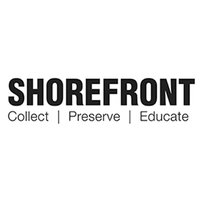
Shorefront Legacy Center
Shorefront Legacy Center is responsible for the collection, preservation, and education of Black History in Chicago’s North Shore. Collection strengths at Shorefront include the Melvin Smith Collection, the NAACP Evanston Branch Records, and the Evanston Photographic Negative Collection. The Center is open to the public. Masks and social distancing are encouraged. You may call 847.864.7467 for questions and assistance. Learn more about Shorefront.
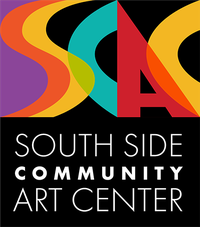
South Side Community Art Center
The South Side Community Art Center opened in 1940 as one of nearly 100 art centers established by the Works Progress Administration’s Federal Art Project. Since that time, it has served as a cultural and artistic hub in Chicago, fostering emerging African American artists and showcasing established talent while connecting South Side residents to art through exhibits, classes, lectures, and other educational programming. The center is the only Works Progress Administration art center still operating as established in its original building. In the late 1930s, a group of Chicago-based Black American artists who were members of the Arts and Craft Guild, some students at SAIC, were instrumental in the founding of the South Side Community Art Center. Founders include Dr. Margaret Taylor-Burroughs, Eldzier Cortor, Bernard Goss, Charles White, William Carter, Joseph Kersey, and Archibald Motley.
The center has been instrumental in showcasing works by prominent African American artists of the 20th century, including poet Gwendolyn Brooks—the first African American woman to win the Pulitzer Prize—and Life magazine photographer and filmmaker Gordon Parks, and MacArthur Genius Fellow Awardee Whitfield Lovell. The Archives and Collections of the South Side Community Art Center hold a wide range of content from 1938 to the present day regarding the Black Arts Movement, past exhibitions and exhibiting artists, correspondences, Artists and Models balls, and classes. This content spans events, finances, publicity, artworks, fundraising, programs, media, and photo documentation.
The majority of the processed materials in the Archives are temporarily housed at the Columbia College Chicago Library in Special Collections. Please contact both the Library (Heidi Marshall, Head of Archives & Special Collections, hmarshall@colum.edu) and the Center (Rebecca Zorach, Archives & Collections Committee Chair, rzorach@sscartcenter.org) to become a member and for permission to view materials. Researchers should also familiarize themselves with the Mapping the Stacks finding aid: http://mts.lib.uchicago.edu/collections/findingaids/index.php?eadid=MTS.sscac
Learn more about the South Side Community Art Center.

Movin' Legacy
Movin’ Legacy is an archiving organization that is dedicated to the promotion of African and African diaspora systems of dance, regarding dance as an institution that preserves histories and safeguards culture’s evolution.
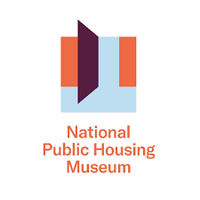
National Public Housing Museum
In 2002, Deverra Beverly, a Commissioner of Housing and a longtime public housing leader, organized with residents to create a public housing museum. They worked to save the last building of the Jane Addams Homes. Together with preservationists, housing advocates, and cultural activists, they spent the next two decades working to create a permanent home for their vision.
In 2007, civic leaders, preservationists, historians, cultural experts, and many others joined with residents to help incorporate the National Public Housing Museum, which has since then offered transformative programs that connect the past with contemporary issues of social justice and human rights. The museum’s permanent home is under construction at the historic Jane Addams Homes at 919 South Ada Street in Chicago’s Near West Side and is opening in 2025.

